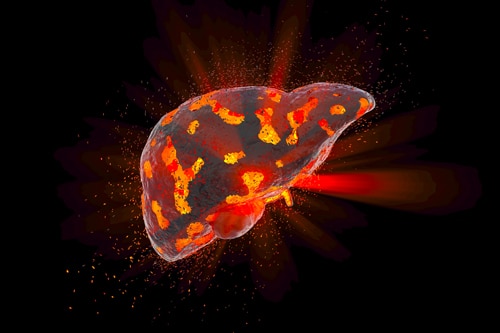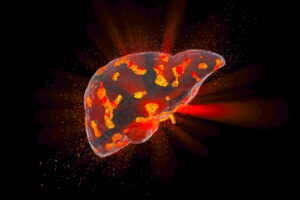
Periodontal Therapy Appears to Modulate Oral-Gut Dysbiosis in Patients With Cirrhosis
A study led by the American Physiological Society reports routine oral care to treat periodontitis may help reduce inflammation and toxins in patients with liver cirrhosis.

A study led by the American Physiological Society reports routine oral care to treat periodontitis may help reduce inflammation and toxins in patients with liver cirrhosis. The study, “Periodontal Therapy Favorably Modulates the Oral-Gut-Hepatic Axis in Cirrhosis,” was published in the American Journal of Physiology—Gastrointestinal and Liver Physiology.
Researchers studied two groups with cirrhosis and mild to moderate periodontitis. The treated group received periodontal care, whereas the control group was not treated. The team collected blood, saliva, and stool samples before and 30 days after periodontal treatment. Standardized tests to measure cognitive function before and after treatment were also taken.
When compared to controls, the treated group, especially those with hepatic encephalopathy—a buildup of toxins in the brain caused by advanced liver disease—had increased levels of beneficial gut bacteria that could reduce inflammation. In addition, they experienced reduced levels of endotoxin-producing bacteria in the oral microbiome. By comparison, the untreated group experienced an increase in endotoxin levels over the same time period. Periodontal therapy was also reported to improve cognitive function among the treated subjects.
Hygiene Connection
October 2018

